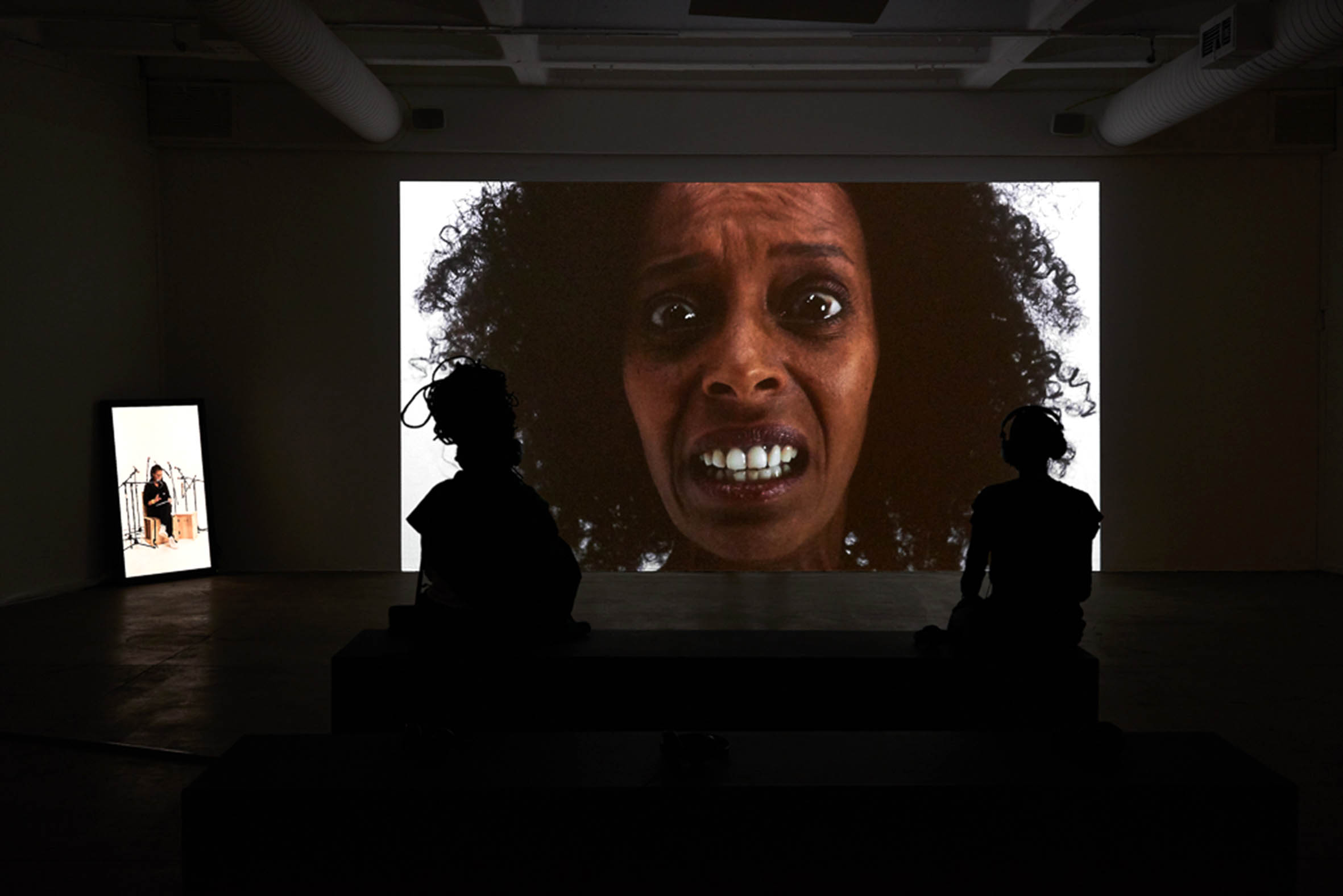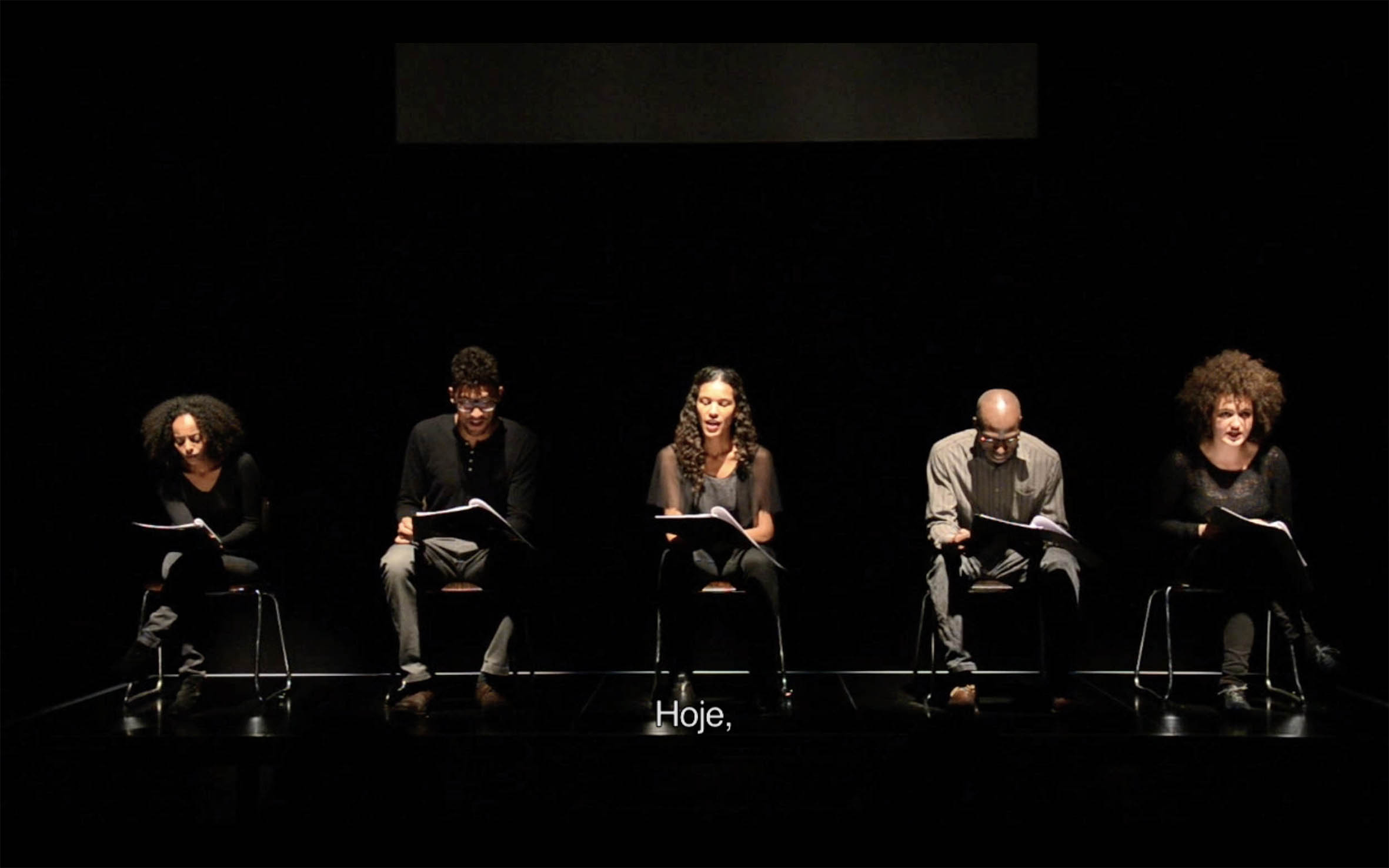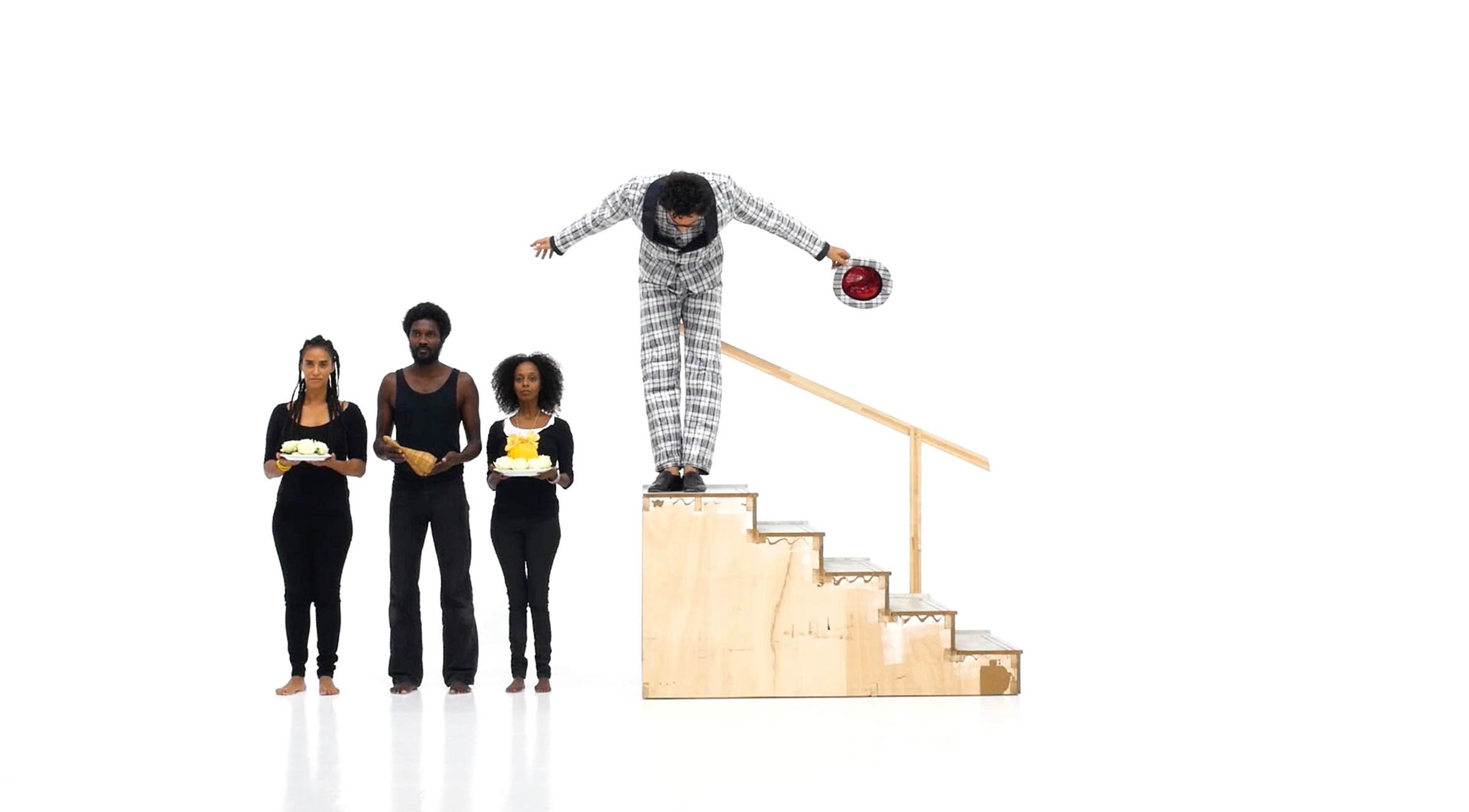Speaking the Unspeakable: The use of text is a major feature in this show by Grada Kilomba.
In all her career as an artist, educator and writer, Germany-based Portuguese artist Grada Kilomba only last year staged her first pair of solo shows on home soil.
The Most Beautiful Language opened at the EGEAC’s Galeria Avenida da Índia in Lisbon last October, and Secret to Tell followed soon afterwards at the Museum Art, Architecture and Technology in the same city.
Kilomba is incredulous when recounting the amount of time it took for that to happen, making the epoch one of huge symbolism and import in her multidisciplinary career that has melded academia and the creative arts to deconstruct the traumatic and denialist aspects of the colonial experience.
“It’s not accidental that the first time I showed my work was in October last year,” says Kilomba. “The first time ever. And I’ve been around the world. We had very big problems before going into these solo exhibitions at the museums in Lisbon. These are very big museums. It was like it was a daring move for them somehow to invite me. It was like a moment.”
This “moment” probably saves Kilomba a lot of explaining. Often seen as tackling overarching and sometimes contested narratives of the colonial encounter, Kilomba’s work can be seen through the prism of diasporic politics. She contends, however, that for her, the works often have very abstract beginnings.
“I try to avoid working with big terms like ‘identity’, ‘culture’, ‘nation’,” she says at the Goodman Gallery, where her show Speaking the Unspeakable runs until April 14.
With familial roots running deep into the Angolan and São Tomé and Príncipe diasporas, the Portuguese prototype of colonialism — a denialist strand masquerading as benign cultural exchange — is something that runs through her bloodline and, naturally, permeates the bulk of her work.
Brimming with immersive text-heavy installations and multiple channel videos, Speaking the Unspeakable is both conceptual and didactic, with Kilomba’s reliance on text creating not so much the feeling of being hectored, but a process of reckoning and confrontation with her experience.
A video with a drum rhythm, ambient voices and white text against a black backdrop, forming part of the three-part The Desire Project, says: “In this world, I am seen as a body, that cannot produce knowledge. As a body ‘outside’ place. I know that while I write, each word I choose will be examined and maybe even invalidated. So why do I write?”

What follows are Kilomba’s reasons, which, having given you some context above, you can pretty much surmise have something to do with “history”, “silencing”, “rupture”, “interrupted speeches” and “white spaces I can hardly enter or stay [in]”.
In Plantation Memories, a series of performed readings, Kilomba has a group of black German actors read from a text she wrote, performing a series of erasures and “negations” — many centred on blackness as a minority experience in Germany. Vital and theatrical from a performative perspective, there exists a certain distance in the emotional register of Plantation Memories, at least from my perspective.

[Plantation Memories involves ‘performing knowledge’, a reaction to academia’s inanimate rendering of information]
I ask Kilomba whether she is working on an assumed universality of the black experience whenever she is making work, work which in her case has travelled across different iterations of diaspora.
“What I see is that we have a very global collective history, that the work resonates in Germany, as it does in Brazil, as it does in South Africa, because of this triangulation of 500 years [of slavery and colonialism] that we have,” she says.
“We went through the same practices of violence and exclusion in the different spaces. We have this collective history. That is quite beautiful then to show the work and to come here to South Africa, for instance, and have black people connect with the work in the same way or even with more intensity.”
Kilomba’s work vacillates between this hyperawareness of differences and a steadfast stance on the sameness of the colonial experience.
Dictionary, for example, uses vocabulary to describe the various states of mind of (post-)colonial societies. It functions as a lingering conversation between the coloniser and the colonised subject, moving through a timeline that goes from denial and guilt to reparations and responsibility.
“I did research of around 12 dictionaries in different languages of these words that we use everyday,” she says. “We speak of our denial, our guilt and shame. How they are defined? What are the antonyms and the synonyms? What are the contradictions? None of these definitions linked any of these words to a colonial history or a history of slavery and marginalisation,” she says.
“I thought it was interesting to do all of this research and then to bring all these different definitions and create my own vocabulary as a black female artist, and then to create an installation that put it in a context of colonial and post-colonialism,” she says.
“And then you see that this is a process, a much more psychological process where I am constantly in transformation. And it is not a moral process; it is not a question of guilt or shame but more a question of responsibility.”
To fully appreciate Kilomba’s work requires an act of generosity from the viewer, as it can be hard to extricate it from the tensions of the gallery experience. It offers contradictions aplenty, a few of them unwittingly. Take the performance of Narcissus and Echo for instance, based on the Greek myth of a hunter who found himself so beautiful he had disdain for all others who loved him.

[Grada Kilomba’s performance of Narcissus and Echo]
Kilomba said the work was, in part, about disrupting the white cube. It can also be read as a metaphor for a ubiquitous whiteness in awe of itself.
In the performance, Narcissus continually ignores Echo (who can only finish sentences) and also cannot see her. In her final attempt to get his attention, she uses as many microphones as she can find to shout after him.
Microphones, incidentally, are used in another piece, the installation The Simple Act of Listening. If you allow me to run with this metaphor, considered in the two pieces, the microphones can be seen to represent the surveillance of black subjects as they enter and are restricted by the cube.
So no matter how many microphones Echo uses, she is ignored by Narcissus, who is constantly enraptured by his own importance (represented by the ubiquitous white backdrop). This, perhaps, can be seen as a conversation between artists and their gallerists and, by extension, audiences. A case of using the master’s tools, as it were.
This may be an unintended reading of the work, one, I would hope, is not considered unkind.
Asked whether the trope of disrupting the white cube (which could be limiting), still bears merit and whether it can be applied in South Africa as one would, for example, in Berlin, Kilomba offered a more rounded reading of the situation.
“I see the complexity of all this. I think, historically, we find ourselves in a place that is so complex that it seems whatever we do [as black people] is wrong. Because we are redefining spaces and we are redefining policies, politics, language and also artistic language.
“Which formats, which genres should I work in? We are redefining everything. If you look back at the Nineties, you had apartheid here. In the Seventies we had a fascist and colonial dictatorship. It is so recent. I think historically we find ourselves in a space and time where it [our creativity] has to be very experimental. We have to experiment with how to gain access to spaces and how do we want to produce knowledge and which languages do we want to reinvent,” she says.
“There is not one position, in my opinion. There is not one right and one wrong and we have to give that freedom to all of us that some want to position themselves at the periphery. Some want to position themselves at the centre. Some want to challenge the centre and some don’t want to enter the centre.”
Seen in this light, perhaps there is no ambivalence about Kilomba’s strategic positioning. The contradictions are free to be imagined.